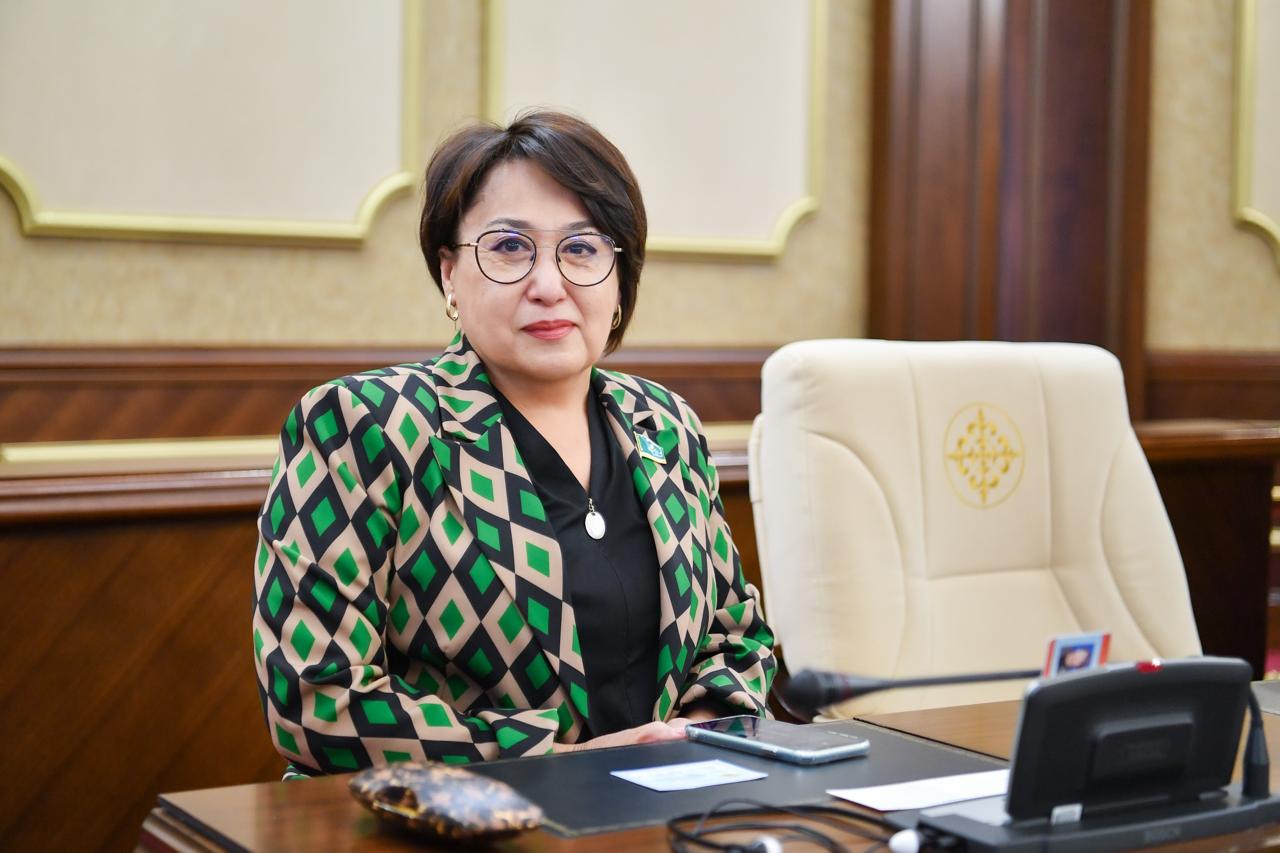Kazakhstan Builds on the Beijing Declaration for Women’s Rights
 An article by Lyazzat Kaltayeva, Member of the National Commission on Women’s Affairs and Family and Demographic Policy under the President of Kazakhstan
An article by Lyazzat Kaltayeva, Member of the National Commission on Women’s Affairs and Family and Demographic Policy under the President of Kazakhstan
*originally published on Asia Law Portal on October 16, 2024
In 1995, the international community gathered in Beijing to sign a landmark agreement – the Beijing Declaration and Platform for Action. This pivotal document became a global framework for advancing gender equality and securing women’s rights across all sectors of society. Almost three decades later, its impact continues to resonate worldwide, inspiring policies and initiatives that empower women to take on new roles and responsibilities. As we approach the 30th anniversary, it is crucial not only to celebrate the significant progress made but also to recognize the challenges that persist in the ongoing struggle for gender equality.
Over the past thirty years, women around the world have seen transformative changes, from gaining greater access to education and economic opportunities to securing leadership positions in both politics and business. Yet, the fight for women’s rights is far from over. While much has been achieved, gaps remain, and the global community must continue to work collectively to ensure that all women and girls can enjoy full equality and protection.
Firstly, access to education for girls and women has seen remarkable improvements across most countries. This has opened the doors for countless women to expand their economic opportunities, attain leadership roles, and amplify their participation in political life. In Kazakhstan, for instance, legislative reforms aligned with international commitments to gender equality and women’s political participation have ensured that political party lists are now composed of at least 30 percent women and youth, based on amendments to the laws On Elections” and “On Political Parties.”
Kazakhstan, as a signatory of the Beijing Declaration, continues to make significant strides in advancing education for girls and women. The literacy rate for women in Kazakhstan has always been high, but recent initiatives further enhance educational access, particularly through programs aimed at increasing the number of girls in schools and higher education. The country is also placing a strong emphasis on STEM (science, technology, engineering, and mathematics) education for girls, working to dismantle long-standing gender stereotypes and inspire more women to pursue careers in science and technology.
We are now witnessing a growing presence of women in scientific fields, including in the space sector and among researchers in both fundamental and applied sciences. Discriminatory practices and barriers—such as restrictions on certain professions for women—are becoming relics of the past. Women’s entrepreneurship is flourishing, with new frameworks supporting both informal and part-time employment. Kazakhstan has introduced progressive legislation, such as joint employment, flexible working hours, and a four-day work week, which empowers women to balance self-care with professional growth.
The Beijing Declaration and Platform for Action also prioritized reducing maternal and child mortality, as well as improving access to reproductive services—goals that are reflected in Kazakhstan’s own Development Strategy. Maternal and child health, along with improving the medical and demographic landscape, remain key national priorities. The Kazakh government is particularly focused on enhancing the health and education of girls, as well as promoting preventive measures in reproductive health.
A key area of progress has been in combating violence against women. Legislation in many countries has become more gender-sensitive, ensuring greater protections for women. Since 2020, Kazakhstan has taken decisive steps to strengthen its legal framework on violence. Acts of rape and sexual violence, once categorized as moderate offenses, have now been reclassified as severe crimes. Furthermore, girls are disproportionately targeted by bullying, both in-person and online. Kazakhstan has officially recognized the terms “bullying and “cyberbullying” within its legal framework, and has introduced a new provision criminalizing acts against individuals financially or otherwise dependent on the perpetrator. The reconciliation process in cases of violence has also been made more stringent.
Kazakhstan has implemented the practice of having female investigators handle cases involving female victims of violence, and established centers where victims can receive comprehensive support in one location. This year marks the introduction of the country’s new “domestic violence law,” or “Saltanat’s Law,” named after Saltanat Nukenova, a young woman who tragically lost her life to gender-based violence. This law, which criminalizes offenses such as battery and light bodily harm, represents a major step forward in strengthening gender equality, justice, and rule of law within Kazakh society.
While these advances are commendable, we must acknowledge that not all gender equality issues have been resolved. A concerted global effort is still required to address the challenges that remain. Civil society organizations, experts, and parliamentarians in Kazakhstan have raised critical issues such as the need for better regulation, the impact of climate change on women, the unique vulnerabilities faced by women in emergency situations, and the rights of marginalized or incapacitated women, including those from socially vulnerable groups.
As life presents new challenges, legislative efforts in Kazakhstan to promote gender equality and protect the rights of women and girls are ongoing. The Beijing Declaration and Platform for Action remain vital instruments in the continued fight for gender equality.
The 30th anniversary of the Beijing Declaration marks a significant milestone in the global journey toward gender equality. While we can reflect on the substantial progress achieved, the mission is far from complete. The ongoing fight for equal rights and opportunities for all women and girls remains critical. It is only through continued global collaboration and commitment that we can build a future where everyone—regardless of gender—has an equal chance to thrive, succeed, and live with dignity.


